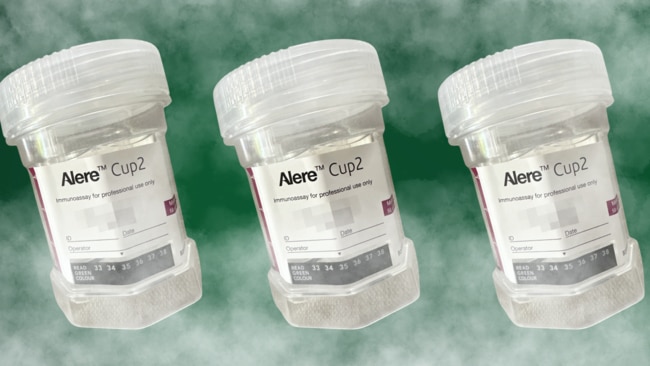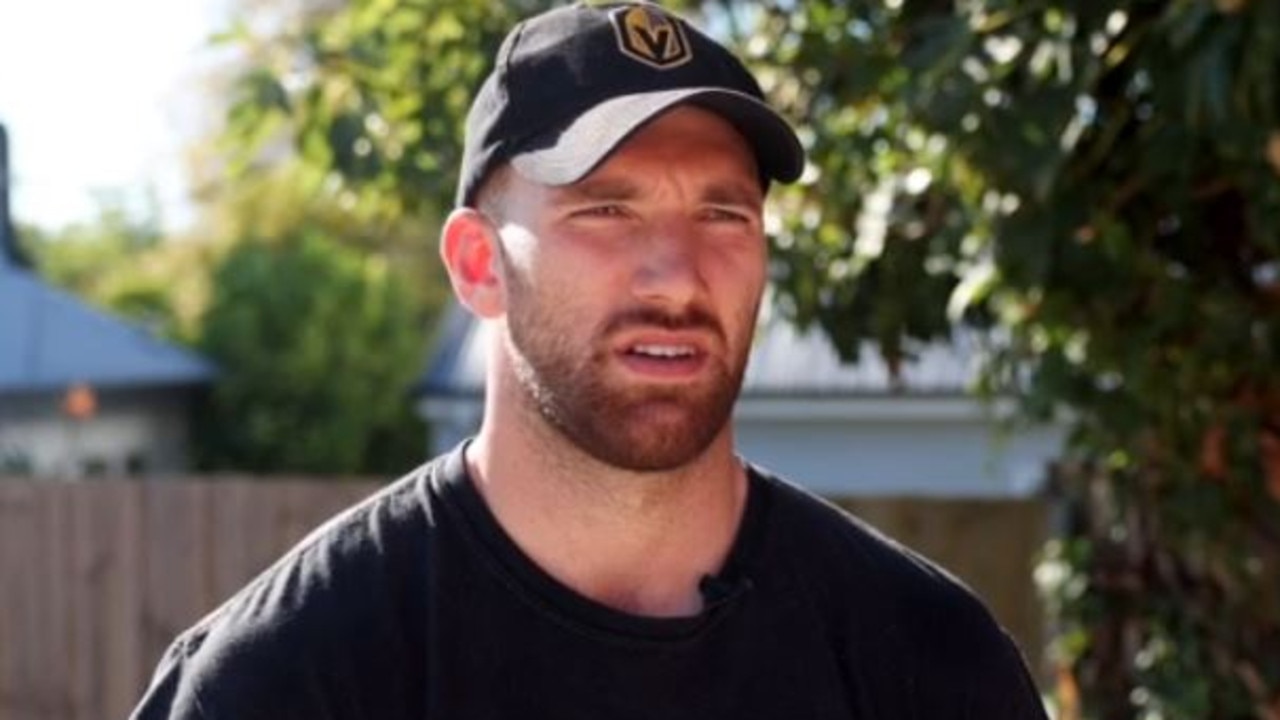‘A medical model of care’: How the AFL-supplied drug tests work
The AFL has been supplying clubs with tests which can detect 13 substances, including cocaine, marijuana, methamphetamine and MDMA. SAM LANDSBERGER unpacks how they work.

AFL
Don't miss out on the headlines from AFL. Followed categories will be added to My News.
Urine tests that can detect traces of 13 substances – including cocaine, marijuana, methamphetamine and MDMA – within minutes are being supplied to club doctors by the AFL.
The kits retail for less than $15 and are used by doctors at all 18 clubs to help ensure players who could violate the WADA code after taking illicit drugs are withdrawn from matches.
But club doctors say they would be negligent to allow their players to line up in AFL matches knowing they had recently taken illicit drugs.
AFL Doctors’ Association president Barry Rigby staunchly defended the under-fire Illicit Drugs Policy on Wednesday and said it was not being exploited by players or clubs.
Dr Rigby said incidents being reported on – such as the withdrawing of players – are “certainly not common place” within clubs.
“It’s a medical model of care,” Dr Rigby told the Herald Sun.
“It’s not designed to find out these culprits and then afford them some sort of punishment.
“That that’s not the goal of the program. The goal of the program is to manage illicit drug use. Recreational drug use is widespread in the community.
“We’d be rather naive to suggest that the AFL is somehow immune from that.
“If a player does test positive – and drug tests are part of the rehabilitation and remediation process – then I would suggest it would be remiss of us to then allow that player to go out and play, knowing full well that it may well be detrimental to their own health.
“But also it may be detrimental to the fact that we’re breaching the WADA and the SIA guidelines.
“So it makes no sense to me medically that we shouldn’t be there supporting the players as much as possible.
“The AFL has at least put into place a policy that supports the players.
“That for one should be commended as an initiative to look after the health and wellbeing of the playing group.”
Rigby said club doctors conducting urine drug tests to safeguard against game day detection was just “one component” of the policy.
“You’ve got to take a step back and look at the AFL’s illicit drug program,” he said.
“It does hair testing, it identifies players that may be at risk, it adopts a medical model of care where the doctor then intervenes, decides on a course of action, that remediation, rehabilitation counselling or whatever.
“This is all done under a shroud of confidentiality and trust by the players and the doctors and we take responsibility for that.
“It’s a confidential encounter. The bottom line is that focusing on urine testing is missing the point.”
The IDP is currently under review by the AFL, the AFLDA and AFL Players’ Association.
Rigby said the AFLDA would not support wholesale changes or a punitive model.
“We think it’s more important that we show empathy and support to the players,” he said
“It’s a medical model, always has been and for our opinion it always should be.”




